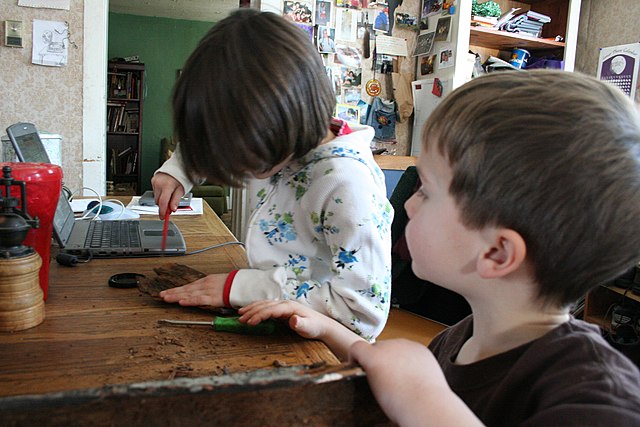Unschooling is an informal learning method that prioritizes learner-chosen activities as a primary means for learning. Unschoolers learn through their natural life experiences including play, household responsibilities, personal interests and curiosity, internships and work experience, travel, books, elective classes, family, mentors, and social interaction. Often considered a lesson- and curriculum-free implementation of homeschooling, unschooling encourages exploration of activities initiated by the children themselves, under the belief that the more personal learning is, the more meaningful, well-understood, and therefore useful it is to the child. While unschooled students may occasionally take courses, unschooling questions the usefulness of standard curricula, fixed times at which learning should take place, conventional grading methods and standardized tests, forced contact with children in their own age group, the compulsion to do homework regardless of whether it helps the learner in their individual situation, the effectiveness of listening to and obeying the orders of one authority figure for several hours each day, and other features of traditional schooling.

Children investigating insect deposits in tree bark as part of an unschooling activity
Unschooling may emphasize free, undirected play as a major component of children's education.
Informal learning is characterized "by a low degree of planning and organizing in terms of the learning context, learning support, learning time, and learning objectives". It differs from formal learning, non-formal learning, and self-regulated learning, because it has no set objective in terms of learning outcomes, but an intent to act from the learner's standpoint. Typical mechanisms of informal learning include trial and error or learning-by-doing, modeling, feedback, and reflection. For learners this includes heuristic language building, socialization, enculturation, and play. Informal learning is a pervasive ongoing phenomenon of learning via participation or learning via knowledge creation, in contrast with the traditional view of teacher-centered learning via knowledge acquisition. Estimates suggest that about 70-90 percent of adult learning takes place informally and outside educational institutions.
Open House Day at ESO's Headquarters.



